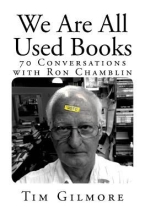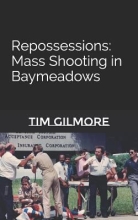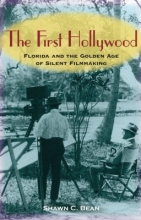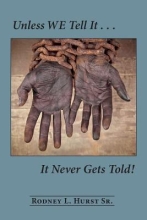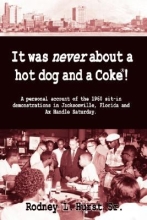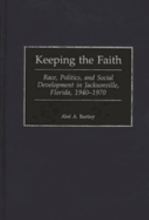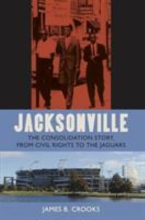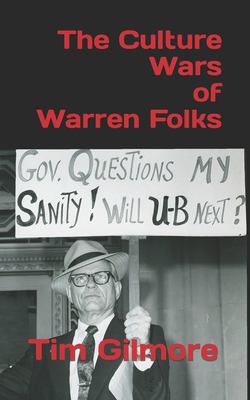 When we think of the study of history, many draw images of strangely dressed figures from hundreds or even thousands of years ago. When learning about American History, we learn about the Founding Fathers and the Civil War. When learning about Florida history, we learn about the Seminole tribe, Ponce de Leon, Ribault, and the founding of St. Augustine. It is in local history, however, where the past truly comes alive. Tim Gilmore does this beautifully in The Culture Wars of Warren Folks, the tale of a local barber whose perennial runs for public office were as predictable as the rising and setting of the sun. A staunch segregationist in the model of George Wallace, Folks opposed Collins when the former governor of Florida made his bid for US Senate. Formerly a segregationist, Collins had altered his views to align with Lyndon B. Johnson’s new model of integration.
When we think of the study of history, many draw images of strangely dressed figures from hundreds or even thousands of years ago. When learning about American History, we learn about the Founding Fathers and the Civil War. When learning about Florida history, we learn about the Seminole tribe, Ponce de Leon, Ribault, and the founding of St. Augustine. It is in local history, however, where the past truly comes alive. Tim Gilmore does this beautifully in The Culture Wars of Warren Folks, the tale of a local barber whose perennial runs for public office were as predictable as the rising and setting of the sun. A staunch segregationist in the model of George Wallace, Folks opposed Collins when the former governor of Florida made his bid for US Senate. Formerly a segregationist, Collins had altered his views to align with Lyndon B. Johnson’s new model of integration.
Tim Gilmore opens with the contest between crime author Mickey Spillane and Warren Folks. With the backing of the Conservative Citizen’s Council, Folks challenged the evocative Mike Hammer series authored by Spillane as something that was “poisoning the minds of young people. It’s interesting to read the passages regarding the former Haydon Burns Library at Ocean and Adams, across the street from where Folks’ barber shop was located, in the context of Folk’s accusation. Reading about Warren Folks will make you consider the history on that corner of Adams and Ocean and the barber’s attempts to stop the progress that LBJ’s new model of integration was meant to foster.
For 40 years, Chamblin's Books has been gracious to countless writers, artists, musicians, and of course, its customers, loyal or new. Today, Chamblin's, in its multiple locations, is the largest independent bookstore in the Southeast. In We Are All Used Books: 70 Conversations with Ron Chamblin, you'll read of:
- A naked bookseller aiming his shotgun at a burglar
- Airplanes built in back of bookstores
- Strange pagan rituals in California mountains
- Finding moonshine stills and trapping a vulture
- A childhood house afloat on a sea of liquor bottles
- Marge the Manatee.
Tim Gilmore is the author of 13 books including Devil in the Baptist Church: Bob Gray's Unholy Trinity, Central Georgia Schizophrenia, The Mad Atlas of Virginia King, In Search of Eartha White, The Ocean Highway at Night, and Stalking Ottis Toole: A Southern Gothic. He's the creator of jaxpsychogeo.com and the JaxbyJax Literary Arts Festival.
On June 18, 1990, James Edward Pough walked into the GMAC auto loan office in Jacksonville, Florida and started shooting. The GMAC Mass Shooting was the worst in Florida history until the Pulse Nightclub Shooting in 2016. In [Repossessions: Mass Shooting in Baymeadows, Tim Gilmore presents the recollections and perspectives of survivors, victims' family members, first responders, and other individuals connected to that horrible day. This nonfiction novella is an adaptation of Gilmore's stage play produced by Florida State College at Jacksonville's DramaWORKS, the 50th production of DramaWORKS' director Kenneth McCulough.
Jacksonville, Florida was once the king of the silent film industry. Devastated by fire in 1901 and rebuilt in a wide variety of architectural styles capable of mimicking other locales, the city shared geographic and meteorological conditions also common to southern California. The city was soon discovered to be an ideal location for northern film production companies eager to relocate from the expense and often inhospitable weather of New York. In 1908, New York-based Kalem Studios sent its first crew to Jacksonville. By 1914, fifteen major companies, including Fox and Metro Pictures, had set up shop there. In total, nearly 300 films were completed in Florida by 1928. But storm clouds hovered over the city; even as Hollywood's boosters sought to discredit this burgeoning Florida film capital, Jacksonville imploded under the strain of political upheaval, simmering racial tensions, disease, and World War I.
The book focuses on the Black history of Jacksonville, Florida and examines racism in America. It is the second book by civil rights activist Rodney L. Hurst Sr.
August 27, 1960, more than 200 whites with ax handles and baseball bats attacked members of the Jacksonville Youth Council NAACP in downtown Jacksonville who were sitting in at white lunch counters protesting racism and segregation. Referred to as Ax Handle Saturday, the book chronicles the racial and political climate of Jacksonville, Florida in the late fifties, the events leading up to that infamous day, and the aftermath.
An examination of the political and economic power of a large African American community in a segregated southern city; this study attacks the myth that blacks were passive victims of the southern Jim Crow system and reveals instead that in Jacksonville, Florida blacks used political and economic pressure to improve their situation and force politicians to make moderate adjustments in the Jim Crow system. Bartley tells the compelling story of how African Americans first gained, then lost, then regained political representation in Jacksonville. Between the end of the Civil War and the consolidation of city and county government in 1967, the political struggle was buffeted by the ongoing effort to build an economically viable African American economy in the virulently racist South. It was the institutional complexity of the African American community that ultimately made the protest efforts viable.
In the 1950s and 60s Jacksonville faced daunting problems. The city government was criticized for being boss-ridden and corrupt, African Americans challenged racial segregation, the St. Johns River was heavily polluted, and downtown development had succumbed to suburban sprawl. In 1967, the city decided to consolidate with surrounding Duval County, transforming this conservative deep south backwater city into a prosperous, mainstream metropolis. James Crooks introduces readers to pre-consolidation Jacksonville and then focuses on three major issues that confronted the expanded city: racial relations, environmental pollution, and the revitalization of downtown.
